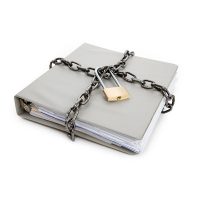Where Should I Keep My Estate Plan?

Do you have an estate plan? You should. Unfortunately, CNBC cited data showing that two-thirds of American adults do not have one at all. You need a comprehensive, well-written, and properly crafted estate plan that is communicated to your closest loved ones. This raises an important question: Where should you keep your estate plan? Within this article, our Boston estate planning attorney answers the question by providing a guide to where you should keep your estate plan.
Best Practices for Storing Your Estate Planning Documents
What is the best practice for storing your estate planning documents? Wills, trusts, powers of attorney (POA), and other key documents need to be in a safe and secure location. In the modern era, there is generally a two-step process for handling your estate planning documents:
- Safe Physical Location (Safe Deposit Box): A safe deposit box at a bank is a popular choice for many. It is a secure, private space where your important documents can be kept safe from theft, fire, or flood. However, remember that access to these boxes is typically limited to bank hours, and if you own your safe deposit box by yourself, once you die, no one other person can access that box and its content before the probate court appoints an estate representative. Ensure that the people who need to have access can access these documents by owning such a box with another individual(s) or by keeping your estate planning document in another location, such as a fire prrof-safe in your home
- Safe Digital Location (Electronic Documents): In today’s digital age, keeping electronic copies of your estate planning documents can be very practical. You may want to also implement a secure digital storage service—or a home safe with a digital copy on a USB drive. Notably, there are platforms that offer high levels of encryption and security.
Be Sure to Clearly Remove/Correct Outdated Estate Planning Documents
When your loved one’s come across your estate planning documents, you do not want them to be confused about what they are seeing. Over time, your life circumstances will change, and so should your estate plan. Always destroy or clearly mark outdated documents as ‘superseded’ to avoid any confusion later. Having multiple versions floating around can lead to disputes and legal headaches.
Do Not Underestimate the Importance of Communication
Imagine that you have your estate planning documents in the most safe, secure place imaginable. That is a good spot—as long as your family and other loved ones can actually get access to these important documents when they need them. Here is where communication plays a central role in the estate planning process. Too many people underestimate the importance of positive and proactive communication. Be sure to discuss with your family where your documents are stored and how to access them. Your Norwood, MA-based estate planning lawyer can act as a central point of contact and provide a roadmap for your loved ones for finding and navigating key documents.
Contact Our Norwood, MA Estate Planning Attorney Today
At Fisher Law LLC, our estate planning lawyers are solutions-forward advocates for clients. If you have any questions about the structure of your estate plan, we are here to help you protect your rights and secure your future. Contact us today to arrange your fully private initial case review. We serve communities throughout the Greater Boston area.
Source:
cnbc.com/2022/04/11/67percent-of-americans-have-no-estate-plan-heres-how-to-get-started-on-one.html
